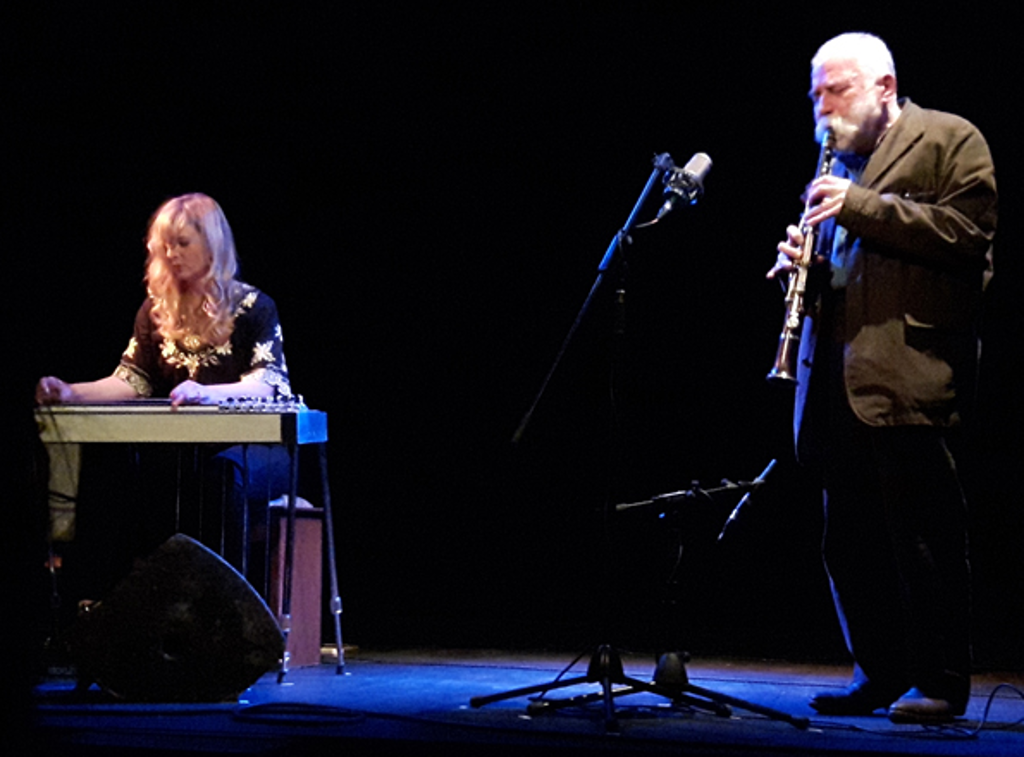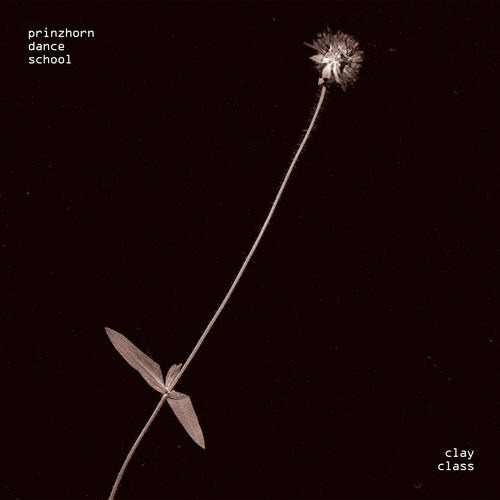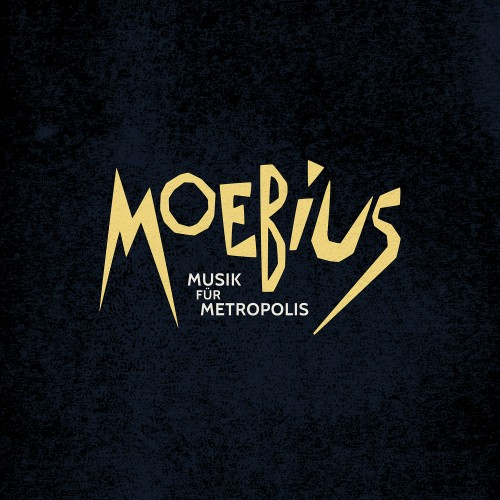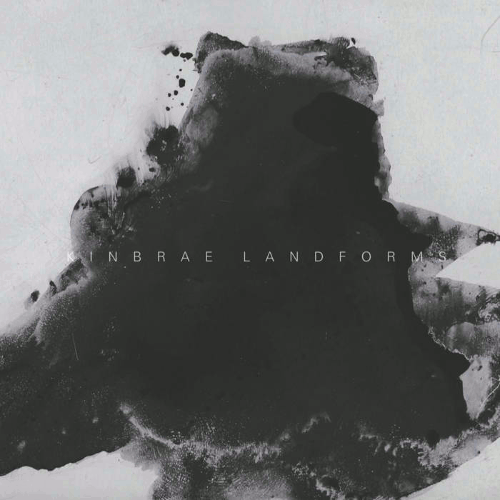Cooking Vinyl / Recommended Records
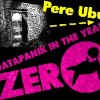 Pere Ubu evolved in a different universe to the rest of 70s rock. In mainstream history as we know and remember it, The Sex Pistols single-handedly swept aside years of proggishness, clearing a completely new path and establishing the new year-zero (OK, that’s a parodic exaggeration, but it isn’t far from what it felt like at the time). But in Ubu world, then centred entirely on the flatlining industrial town of Cleveland, Ohio, long before the Bill Grundy affair and God Save the Queen, the riddle had already been solved and the code already broken. Their early, self-released run of singles on the Hearpen label (30 Seconds Over Tokyo, Final Solution, Street Waves and The Modern Dance) admittedly owe debts to The Stooges and Velvet Underground (but then so did the Pistols) yet the total effect is of something that’s still raw and driving, as before, but painted in more vivid, stinging colours – almost psychedelic, yet resolutely urban and modern. The guitars have a pissy, razor-wire lyricism that’s new to mainstream rock while Alan Ravenstine’s synthesiser adds Vorticist blocks of noise and what sounds like everyday life burbling and murmuring its way into the mix (imagine Eno’s contribution to Roxy Music if he’d been more of an insurrectionary Dadaist than a dandy, liberal water-colourist.) The lyrics and imagery seemed to come from a distinctly heady urban working class point of view too, dealing in anxiety, terror and routine dislocation.
Pere Ubu evolved in a different universe to the rest of 70s rock. In mainstream history as we know and remember it, The Sex Pistols single-handedly swept aside years of proggishness, clearing a completely new path and establishing the new year-zero (OK, that’s a parodic exaggeration, but it isn’t far from what it felt like at the time). But in Ubu world, then centred entirely on the flatlining industrial town of Cleveland, Ohio, long before the Bill Grundy affair and God Save the Queen, the riddle had already been solved and the code already broken. Their early, self-released run of singles on the Hearpen label (30 Seconds Over Tokyo, Final Solution, Street Waves and The Modern Dance) admittedly owe debts to The Stooges and Velvet Underground (but then so did the Pistols) yet the total effect is of something that’s still raw and driving, as before, but painted in more vivid, stinging colours – almost psychedelic, yet resolutely urban and modern. The guitars have a pissy, razor-wire lyricism that’s new to mainstream rock while Alan Ravenstine’s synthesiser adds Vorticist blocks of noise and what sounds like everyday life burbling and murmuring its way into the mix (imagine Eno’s contribution to Roxy Music if he’d been more of an insurrectionary Dadaist than a dandy, liberal water-colourist.) The lyrics and imagery seemed to come from a distinctly heady urban working class point of view too, dealing in anxiety, terror and routine dislocation.
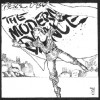 Their first album, The Modern Dance, clinched the deal that the early singles had brokered. From the steroid punk of the opening “Non-Alignment Pact” and the whip crack articulation of the title track (“Watch real close / Look real fast / He’s in touch / It’ll never last / He’ll never get… the modern dance”) via the existential drama of “Sentimental Journey” and cold war chill of “Chinese Radiation“ (“He’ll be the red guard / She’ll be the new world / He’ll wear his grey cap / and she’ll wave her red book”) right through to the final track, “Humour Me” (“Life’s a joke, man – come on… humour me”) with its world weary lyric and molten guitar solo, Pere Ubu unveiled a self-consistent sonic universe that rocked as hard as anything before it while practically boiling over with intellectual energy and conviction: they’d found their own solution to the problem of the dead end of early 70s rock music. Founder, lead singer, lyricist and long-time lynchpin of the group, David Thomas, argues that the achievement was based on the peculiarities of the Cleveland scene of the time and its unusual composition. He may be right, but however they managed it Pere Ubu turned out to be one of the truly great creative forces of the period.
Their first album, The Modern Dance, clinched the deal that the early singles had brokered. From the steroid punk of the opening “Non-Alignment Pact” and the whip crack articulation of the title track (“Watch real close / Look real fast / He’s in touch / It’ll never last / He’ll never get… the modern dance”) via the existential drama of “Sentimental Journey” and cold war chill of “Chinese Radiation“ (“He’ll be the red guard / She’ll be the new world / He’ll wear his grey cap / and she’ll wave her red book”) right through to the final track, “Humour Me” (“Life’s a joke, man – come on… humour me”) with its world weary lyric and molten guitar solo, Pere Ubu unveiled a self-consistent sonic universe that rocked as hard as anything before it while practically boiling over with intellectual energy and conviction: they’d found their own solution to the problem of the dead end of early 70s rock music. Founder, lead singer, lyricist and long-time lynchpin of the group, David Thomas, argues that the achievement was based on the peculiarities of the Cleveland scene of the time and its unusual composition. He may be right, but however they managed it Pere Ubu turned out to be one of the truly great creative forces of the period.
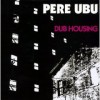 The follow-up album, Dub Housing, continued many of the themes from the first. Even though it narrowed down the sonic spectrum slightly it still made for a thrilling album that kept Ubu’s hat in the ring as a group capable of making galvanising, magnificent music. Tracks such as “Navvy” and “On the Surface“ continued working the vein of asymmetrical garage punk psychedelia they’d already mined so well, while “Codex“ and “Blow Daddy-O” saw them edging out onto more experimental turf (though they had pedigree in this department too, in the aforementioned raucous “Sentimental Journey”). The following album, New Picnic Time, scuttled further out along this trajectory into the unknown, cranking up the experimental side of the group until the rhythmic and melodic structures that drove their great early songs began to unravel, and increasingly the music had a tendency to devolve into tone poems, sketches or improvised scribbles and blowouts. The band’s intellectual focus also seemed to be moving away from the early themes of urban paranoia toward depictions of bemusement and pleasure at participating in the little things in life and ‘the everyday’. It was never obvious to what extent Thomas’s new persona was really immersing himself in detail, as opposed perhaps to simply trying to avoid thinking about anything grander. Around this time Thomas seems to have become a proselytising Jehova’s Witness, and you do wonder what was going on in his mind when the band created New Picnic Time’s (to me) intensely threatening “Jehova’s Kingdom Comes “(here renamed “Kingdom Comes”, as it has been on releases ever since Thomas shook off his religious mania).
The follow-up album, Dub Housing, continued many of the themes from the first. Even though it narrowed down the sonic spectrum slightly it still made for a thrilling album that kept Ubu’s hat in the ring as a group capable of making galvanising, magnificent music. Tracks such as “Navvy” and “On the Surface“ continued working the vein of asymmetrical garage punk psychedelia they’d already mined so well, while “Codex“ and “Blow Daddy-O” saw them edging out onto more experimental turf (though they had pedigree in this department too, in the aforementioned raucous “Sentimental Journey”). The following album, New Picnic Time, scuttled further out along this trajectory into the unknown, cranking up the experimental side of the group until the rhythmic and melodic structures that drove their great early songs began to unravel, and increasingly the music had a tendency to devolve into tone poems, sketches or improvised scribbles and blowouts. The band’s intellectual focus also seemed to be moving away from the early themes of urban paranoia toward depictions of bemusement and pleasure at participating in the little things in life and ‘the everyday’. It was never obvious to what extent Thomas’s new persona was really immersing himself in detail, as opposed perhaps to simply trying to avoid thinking about anything grander. Around this time Thomas seems to have become a proselytising Jehova’s Witness, and you do wonder what was going on in his mind when the band created New Picnic Time’s (to me) intensely threatening “Jehova’s Kingdom Comes “(here renamed “Kingdom Comes”, as it has been on releases ever since Thomas shook off his religious mania).
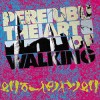 1980’s The Art of Walking seemed to break the back of the band for a while. The critics couldn’t make up their mind whether it represented a new, artier and more liberated Pere Ubu or a band that had lost its wits. The album is generally remembered as a loose and rambling disappointment, as if the group had finally stalled – and this despite that fact that Mayo Thompson’s joining meant they got the chance to record the definitive version of his song “Horses” on this album (“is that a horse, whose footsteps I hear approaching / on the run from some strange, unknown danger / or just my heart, beating so noisily?”) as well as several other perfectly fine songs of their own. Along with a lot of other people, I lost the thread of Pere Ubu somewhere around this point, which is a shame because it means I missed 1982’s Songs of the Bailing Man, which delivers more of the free-form Ubu of the previous album, but with greater focus and more punch. Not coincidentally, given Mayo Thompson’s involvement in the group at the time, the final two albums of this set seem to have cut loose the Velvets and Stooges influences entirely in order to hoist the group entirely onto the terrain of 60s experimental free rock in the spirit of Thompson’s first group The Red Crayola. There was plenty to love about the last two albums, but the group had by now transformed themselves entirely and, after Songs of the Bailing Man they broke up, putting the seal on almost a decade of work.
1980’s The Art of Walking seemed to break the back of the band for a while. The critics couldn’t make up their mind whether it represented a new, artier and more liberated Pere Ubu or a band that had lost its wits. The album is generally remembered as a loose and rambling disappointment, as if the group had finally stalled – and this despite that fact that Mayo Thompson’s joining meant they got the chance to record the definitive version of his song “Horses” on this album (“is that a horse, whose footsteps I hear approaching / on the run from some strange, unknown danger / or just my heart, beating so noisily?”) as well as several other perfectly fine songs of their own. Along with a lot of other people, I lost the thread of Pere Ubu somewhere around this point, which is a shame because it means I missed 1982’s Songs of the Bailing Man, which delivers more of the free-form Ubu of the previous album, but with greater focus and more punch. Not coincidentally, given Mayo Thompson’s involvement in the group at the time, the final two albums of this set seem to have cut loose the Velvets and Stooges influences entirely in order to hoist the group entirely onto the terrain of 60s experimental free rock in the spirit of Thompson’s first group The Red Crayola. There was plenty to love about the last two albums, but the group had by now transformed themselves entirely and, after Songs of the Bailing Man they broke up, putting the seal on almost a decade of work.
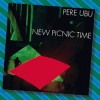 The Datapanik in the Year Zero set summing up the first phase of Pere Ubu’s existence was previously released in 1996. Here it’s been transplanted into a much more compact box and shorn of the (great) 390° of Simulated Stereo live album that came with the original. On the other hand most of the material has been completely remastered. As well as the Hearpen singles and the masterpiece debut album the box includes the subsequent four albums (Dub Housing, New Picnic Time, The Art of Walking and Song of the Bailing Man), a copy of the booklet that came with the original release (complete with reminiscences from various key players, a brief history of the band, an account of the various Ubu line-ups, etc.) and a further CD of tracks from other groups in the Cleveland scene, including Mirrors and Electric Eels as well as solo tracks from various Ubu players (Tom Herman and Alan Ravenstine, as well as Thomas himself), the proto-Ubu band, Rocket From the Tombs (“Amphetamine” and an early version of “30 Seconds Over Tokyo”), and even unreleased tracks from an early incarnation of the group with original guitarist, the legendary Peter Laughner (“Heart of Darkness” and a cover of The Seeds’ “Pushin’ Too Hard”). Touching on the tawdry matter of ordinary commercial calculations, this box is currently selling for less than the price of most single CDs, which means that the only reason not to buy it is if you already have the music or your heart is already definitively hardened against the group. Everyone else should want to hear the music of this singular band, and this collection is the way to do it.
The Datapanik in the Year Zero set summing up the first phase of Pere Ubu’s existence was previously released in 1996. Here it’s been transplanted into a much more compact box and shorn of the (great) 390° of Simulated Stereo live album that came with the original. On the other hand most of the material has been completely remastered. As well as the Hearpen singles and the masterpiece debut album the box includes the subsequent four albums (Dub Housing, New Picnic Time, The Art of Walking and Song of the Bailing Man), a copy of the booklet that came with the original release (complete with reminiscences from various key players, a brief history of the band, an account of the various Ubu line-ups, etc.) and a further CD of tracks from other groups in the Cleveland scene, including Mirrors and Electric Eels as well as solo tracks from various Ubu players (Tom Herman and Alan Ravenstine, as well as Thomas himself), the proto-Ubu band, Rocket From the Tombs (“Amphetamine” and an early version of “30 Seconds Over Tokyo”), and even unreleased tracks from an early incarnation of the group with original guitarist, the legendary Peter Laughner (“Heart of Darkness” and a cover of The Seeds’ “Pushin’ Too Hard”). Touching on the tawdry matter of ordinary commercial calculations, this box is currently selling for less than the price of most single CDs, which means that the only reason not to buy it is if you already have the music or your heart is already definitively hardened against the group. Everyone else should want to hear the music of this singular band, and this collection is the way to do it.
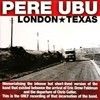 Cut to 1987 and, after a few years in retirement, Pere Ubu was resurrected with many of the original band back in position, and with the addition of Henry Cow’s Chris Cutler as second drummer alongside Scott Krause. This group worked for a number of years until synthesizer genius Alan Ravenstine was eventually replaced by Eric Drew Feldman on keyboards. This is the short lived band recorded uniquely on this live recording from The Mean Fiddler, London on March 16 1989. By this time the group were becoming something of a hard-working live act, playing noisy and articulate garage punk in the tradition of the band’s first few years. The experimental edge had been replaced by an artisanal attitude and dogged approach that had its own pleasures – less wilful and provocative, but more assured than ever before, which is precisely what you get on this new release. On paper they were an exceptional band so it’s good to have this record to see what they were capable of. The set list mixes material from the much underrated album Cloudland (“Waiting for Mary”, “Cry, Love Love Love” and “Breath”) with a raft of crowd-pleasing classics (“Caligari’s Mirror”, “Humour Me”, “On the Surface” and a brittle and superbly argumentative “Final Solution” played as an encore.) Eric Feldman sometimes sounds hesitant – as he might well do, being only a few weeks into the job – but then he’ll suddenly come out with just the same kind of raging electronic torrent that Ravenstine had coined, and he mostly falls easily into his stride.
Cut to 1987 and, after a few years in retirement, Pere Ubu was resurrected with many of the original band back in position, and with the addition of Henry Cow’s Chris Cutler as second drummer alongside Scott Krause. This group worked for a number of years until synthesizer genius Alan Ravenstine was eventually replaced by Eric Drew Feldman on keyboards. This is the short lived band recorded uniquely on this live recording from The Mean Fiddler, London on March 16 1989. By this time the group were becoming something of a hard-working live act, playing noisy and articulate garage punk in the tradition of the band’s first few years. The experimental edge had been replaced by an artisanal attitude and dogged approach that had its own pleasures – less wilful and provocative, but more assured than ever before, which is precisely what you get on this new release. On paper they were an exceptional band so it’s good to have this record to see what they were capable of. The set list mixes material from the much underrated album Cloudland (“Waiting for Mary”, “Cry, Love Love Love” and “Breath”) with a raft of crowd-pleasing classics (“Caligari’s Mirror”, “Humour Me”, “On the Surface” and a brittle and superbly argumentative “Final Solution” played as an encore.) Eric Feldman sometimes sounds hesitant – as he might well do, being only a few weeks into the job – but then he’ll suddenly come out with just the same kind of raging electronic torrent that Ravenstine had coined, and he mostly falls easily into his stride.
Everything from the CD and even more material from this show is also available for download from the Ubu Projex site. Chris Cutler justifies the separate existence of the CD, saying: “I wanted to release a CD with a good programme and well performed pieces – that would offer an untroubled and enjoyable listening, start to finish and would work as a CD. So I selected the most persuasive performances and then, very thoroughly, edited and remastered all the pieces.” A fair person would say he’d succeeded – this is a great recording of a great band in transition.
-Andy Wilson-
